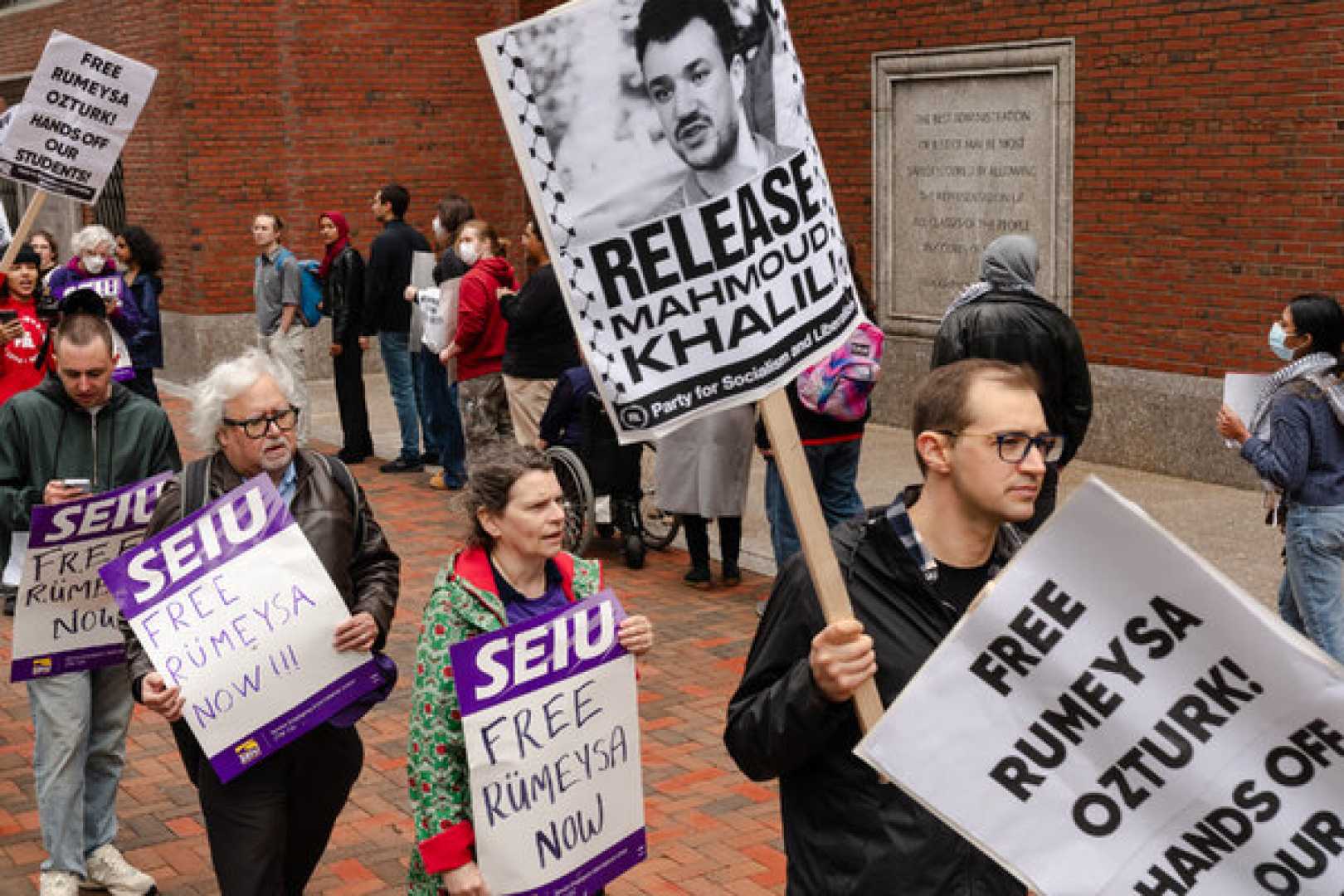News
Visa Revocations Spark Fear Among International Students Amid U.S. Crackdown

Columbia, Mo. — A crackdown on international students in the United States has intensified, with reports indicating that over 600 visas have been abruptly revoked, raising fears among students and academic institutions alike. The controversial actions come during a tense political climate, where minor infractions have become reasons for deportation.
One poignant case involves Kseniia Petrova, a Harvard Medical School researcher, who is currently held in Immigration and Customs Enforcement (ICE) custody. Petrova was detained after failing to declare frog embryos while returning from France in February. Her attorney, Greg Romanovsky, described the visa revocation as “grossly disproportionate” to her actions, suggesting it was merely an “inadvertent” mistake.
Petrova is now awaiting a hearing scheduled for June 9, with the prospect of being sent back to Russia looming over her. According to her attorney, returning to Russia could lead to her immediate arrest due to her outspoken stance against the invasion of Ukraine. “Her detention is not only unnecessary but unjust,” Romanovsky remarked.
Petrova’s case underscores a broader issue. CNN has obtained information showing that over 525 students, faculty, and researchers have had their visas revoked in recent months. In a statement, Secretary of State Marco Rubio acknowledged the State Department’s role in revoking more than 300 visas, primarily impacting students. The reasons for visa terminations range from alleged ties to terrorism to minor misconduct, creating an environment of uncertainty for many.
Legal experts express concern over the implications of these developments. Jeff Joseph, president-elect of the American Immigration Lawyers Association, criticized the measures as creating panic among students. “The tools exist within the immigration statute, but their application is causing mass hysteria,” he said.
Many students, including Xiaotian Liu from Dartmouth, are taking legal action against sudden visa revocations. Liu was able to secure a temporary restraining order after his F-1 visa was revoked without explanation. His lawyers assert that while the State Department holds the authority to revoke visas, ICE should not enforce immediate deportation.
Furthermore, reports have emerged of students being detained without prior warning. Doğukan Günaydin, a University of Minnesota graduate, was taken into custody due to a prior DUI conviction, despite some confusion regarding the timing of his visa revocation.
Legal representatives stress that revoking visas for minor offenses is unprecedented. David Wilson, an immigration attorney, noted, “Saying that your legal status is ended because of that, there’s no precedent for that. There’s no authority for that.”
Pressure mounted on universities as many reported receiving no prior notice about visa revocations affecting their students. Institutions like UCLA and Stanford have expressed frustration over the lack of communication from immigration authorities. “The government was revoking visas without notifying us,” UCLA Chancellor Julio Frenk stated.
Amid the turmoil, international students express anxiety about their futures. A freshman at a Philadelphia university, who asked to remain anonymous, described a prevailing sense of unease: “We feel anxiety because we don’t know what’s going to happen.”
The trend is expected to continue, as recently established initiatives leverage AI to monitor social media for potential threats tied to visa holders. Critics warn that this strategy could lead to further unjust terminations and deportations.
Reports of students facing deportation due to past misdemeanors are alarming. For example, Felipe Zapata Velázquez, a Colombian student out of Florida, was detained for minor traffic offenses and faced deportation threats, prompting protests at his university.
Colleges nationwide are grappling with the implications of these actions as students increasingly fear the potential for undocumented status over minor infractions. Many affected students joined a collective Zoom meeting hosted by an immigration legal expert, who urged them not to panic over misdemeanors.
With the upcoming hearings and uncertainties surrounding legal statuses, the plight of international students in the U.S. is likely to remain a pressing issue. As the tension heightens, the call for clarity and fair treatment reverberates throughout campuses across the nation.












